Fresh Ideas for Safeguarding American Elections
Partisan polarization poses an ominous threat to U.S. democracy—and to democracies around the world. In this collection, experts and practitioners offer fresh ideas for how leaders can work together to protect the integrity of elections and restore public confidence in democracy.
Contributors to this series participated in a workshop on U.S. elections, held at UC San Diego in December 2023, that was co-sponsored by the UC Institute on Global Conflict and Cooperation’s (IGCC) Future of Democracy Initiative, together with UC San Diego’s Yankelovich Center for Social Science Research and the Johns Hopkins SNF Agora Institute.
Jump to a specific topic:
- Michael Sozan: To Defend Democracy, Change Is Needed
- Cassandra Emmons: (Re)Building Confidence in Elections Requires Trusted Messengers
- Trey Grayson: Congress Must Act To Support America’s Electoral Workforce
- LaGina Gause: We Must Defend Core Democratic Principles
- Lauren Prather: Clarifying the Trust in Elections Problem
- Curtis Chang: The Movement to Rebuild Democracy in America Must Include Religious Groups
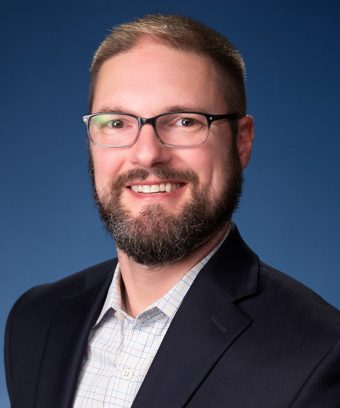
Michael Sozan: To Defend Democracy, Change Is Needed
The United States is the world’s longest-running democratic nation-state. However, democracy itself is an experiment, and it is being severely tested. The United States’ success or failure in this experiment has global implications.
The U.S. system of free and fair elections is challenged by forces seeking to reverse progress toward a democracy of equal representation, including for long-marginalized communities. Partisan lawmakers continue to erect barriers that lock in political minority rule, including through state laws that make it harder to vote and easier to subvert elections.
Meanwhile, the growing threat of political violence was realized in the deadly January 6th insurrection, which sought to stop the peaceful transfer of presidential power on the basis of disinformation about election integrity.
Despite these setbacks, steps can be taken to protect the 2024 elections and reinvigorate the democratic process. In the short term, a cross-partisan movement can push back against those who use disinformation or violent rhetoric to subvert free and fair elections. Such a movement can help counter the rising dangers of authoritarianism and extremism by reminding Americans that what unites them is far more important than what divides them. Additionally, the dedicated professionals who run elections must be protected against threats to their safety, and their critically important work must be fully funded.
Over the longer term, new laws are needed to modernize the structures of American democracy, including through federal legislation that prohibits partisan gerrymandering and establishes baseline rules for voting and administering elections. Further electoral reforms such as ranked-choice voting and proportional representation can create a fairer electoral process.
Michael Sozan is a senior fellow at the Center for American Progress.
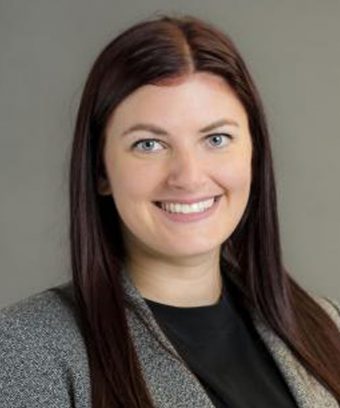
Cassandra Emmons: (Re)Building Confidence in Elections Requires Trusted Messengers
Small-d democracy has been on the decline globally for nearly two decades according to objective measures. Elections present opportunities for people to direct or redirect their country’s trajectory. In 2024, voters in nearly 70 countries are anticipated to go to the polls to elect representatives who will govern nearly half of the global population. The world thus stands at a critical juncture for the global arc of democracy.
A precondition for voters participating in elections and subsequently accepting the outcome is trust. People must trust that the process is fair and reflects the collective will. They must trust the institutions that oversee and deliver that process will do so with integrity. And, at a fundamental level, they must trust the people involved in elections, including election officials, political candidates, and their fellow voters. Unfortunately, confidence in elected officials, political processes, and political institutions has been on the decline for nearly two decades. Nevertheless, there are a few ways that democracy defenders in every country can help bolster trust in elections—for this consequential election year and beyond.
Stakeholders in every country must be prepared to publicly defend election officials and electoral processes, both of which have been under increasing threat the past few years. This support is especially important where policies—including vote counting timelines, handling of absentee ballots, or election dispute procedures—differ from place to place. Being transparent about these differences and increasing public familiarity with intricate electoral procedures can make elections less enigmatic and more trustworthy. Candidates, elected officials, election observers, and other stakeholders publicly expressing support for election officials who are following prescribed processes can likewise quell unfounded concerns about their integrity.
The onus is not only on election officials to communicate to the public. A key step to closing the trust gap is identifying trusted messengers who can support these efforts. Trusted messengers can be people entrenched in local communities, including youth and religious leaders, or public figures, such as social media influencers. They can be proactive in their messaging, for instance, by encouraging participation among young voters and communities that are otherwise marginalized from political processes. When equipped with accurate information and fact-based narratives, trusted messengers can also be reactive, countering misinformation in what is an increasingly overwhelming media environment. Trusted messengers can cut through noise that others—no matter how authoritative—simply cannot.
Rebuilding trust is essential for the decisive moment that the 2024 election year presents. Maintaining that trust for future elections requires consistent investment in these forms of democratic resilience.
Dr. Cassandra Emmons is the Senior Democracy Data Analyst at the International Foundation for Electoral Systems.
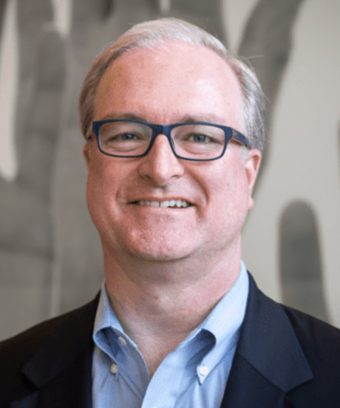
Trey Grayson: Congress Must Act To Support America’s Electoral Workforce
Twenty years ago, I was sworn in as Kentucky’s secretary of state. My time in office was like the stone age compared to the era in which we now find ourselves.
Election administrators across the country have had to navigate a global pandemic, attempts at foreign interference, and an insurrection to disrupt the peaceful transition of power. In addition to the perennial challenges plaguing election administration, such as chronic underfunding and a shortage of poll workers, officials today contend with death threats, grifters trying to make a buck at the expense of democracy, misinformation about election security, and unprecedented pressure from partisan political actors.
The past two decades have taught me that the most impactful step we could take to improve elections would be to increase the resources available to administer them. Investments in the United States’ electoral infrastructure must grow meaningfully and consistently. And they must be proactive, rather than in reaction to the latest crisis.
Increased resources would lead to better talent attraction and retention at all levels—from top election administrators to the election day poll workers, who are practically volunteers. Fewer election offices would be short-staffed, and talent would be retained though improved career pathways and professional development opportunities.
Right-sized investments in election administration would also lead to the kind of meaningful innovation in elections technology that we have seen in other sectors. It would also help us implement the security enhancements needed to continually protect us from adversaries—both foreign and domestic—who wish to intervene in electoral outcomes.
Such an increase would require funding from Congress. While congressional approval is necessary to support funding increases on a consistent basis, the federal government should work collaboratively with state authorities and not insist on a one-size-fits all system of elections in the process.
Given Congress’ recent dysfunction, calling for it to be the solution to a big national problem may seem like a fool’s errand. However, last year Congress successfully passed needed reforms to the Electoral Count Act.
In the meantime, election administrators will continue working diligently to make sure we have a trustworthy election system. Let’s give them the support they need.
Trey Grayson served as the secretary of state of Kentucky from 2004 to 2011. Grayson continues to work to improve elections in Kentucky and across the country by assisting secretaries of states and other election administrators, legislators, and stakeholders. He served as a precinct officer in his home county for Kentucky’s 2023 primary and general elections.
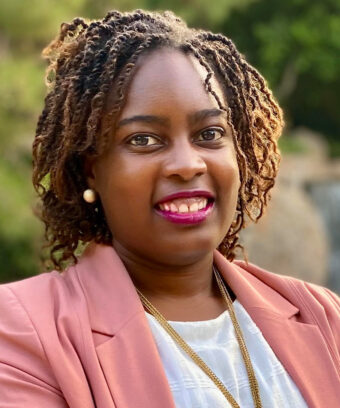
LaGina Gause: We Must Defend Core Democratic Principles
Despite historically high levels of political participation, many Americans believe their democracy is in turmoil and have little trust in its institutions. A lack of agreement over what democracy looks like and who it should serve presents a serious threat to U.S. democracy.
Theorists assert that democracy demands that everyone can participate when they want to do so. Yet, a nontrivial proportion of Americans are concerned that democracy is not working because too many people they disagree with are participating.
Stated another way, some Americans prefer—and have firm commitments to—political inequality. Furthermore, because they believe democratic institutions are broken, they no longer feel compelled to abide by democratic processes.
Politicians, election officials, and political pundits are alarmed by the number of Americans who express a willingness to use extra-institutional means to subvert the 2024 elections. This threat is less puzzling if we accept that some people are willing to undermine democratic processes precisely because historically marginalized groups are engaging in them.
Measures to ensure that elections are transparent, and that voting is accessible to every eligible voter in 2024, are crucial for rebuilding trust and are well underway. It is also vital to remind Americans of the principles that define democracy. An extensive civic education campaign is required to explain how important widespread political participation is in a democracy.
Without a commitment to democratic principles, efforts to make voting accessible and transparent will do little to ease the anxieties that spur political violence. Robust civic outreach is needed to quell the win-at-all-cost mentality that has taken hold among large swaths of the electorate.
LaGina Gause is an assistant professor at the University of California, San Diego and an affiliate with the Future of Democracy initiative at the University of California Institute on Global Conflict and Cooperation (IGCC).
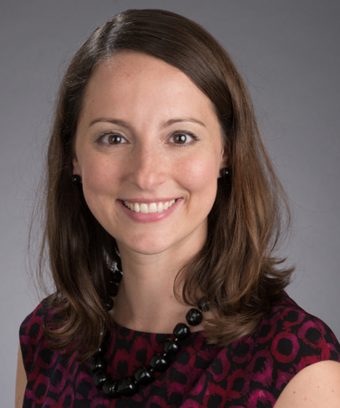
Lauren Prather: Clarifying the Trust in Elections Problem
As we approach November 2024, the problem of trust in elections must be articulated more clearly.
There are three ways in which different issues related to electoral trust are conflated. First, the United States has two distinct trust problems: one is election skepticism, and the other is election extremism. Election officials are most vocal about the extremism problem. Fears of violence, threats to officials, and disruptions on Election Day are all associated with extremism. On the other hand, public opinion polling suggests that individuals are growing increasingly skeptical of election results.
These problems are different, and their solutions are too. Extremists are unlikely to be persuaded by greater electoral transparency or public outreach from election officials—but skeptics could be. Even if skeptics are not persuaded by these kinds of interventions, such actions could inoculate them against extremist appeals.
Addressing extremism requires a different approach altogether. In the short-term, it requires strengthening our defenses against it by increasing security at polling places and election facilities, among other measures. In the longer-term, disrupting election extremism could take the form of programs to de-radicalize believers. Research into countering the broader domestic extremism threat in the United States is beginning to shed light on the effectiveness of such programs.
Second, the skepticism problem itself is a tangle of overlapping issues. Trust in elections is likely a product of both the desire to have an accurate view of election integrity and an emotional response to a candidate winning or losing. Research across countries and over time shows that individuals trust elections more when their candidate wins and less when their candidate loses. That emotional response is becoming increasingly dramatic given rampant political polarization in the United States and—as a result—the perception of higher and higher stakes in each election.
Because of the complex nature of trust in elections, the solution to increasing trust is multi-faceted. For Americans concerned with accuracy in elections, interventions that increase transparency and outreach to voters could improve trust. This would do little, however, to change the minds of those who are skeptical simply because their preferred candidate lost. Instead, a more holistic approach to depolarize U.S. society is needed. Interventions could also target elite rhetoric to lower the temperature of campaigns.
Finally, distrust reported in polls must be differentiated from real world behavior. There is a disconnect between what people say on surveys and how they actually behave. Not everyone who reports distrust in elections to pollsters is an extremist who threatens election officials. Nor are such respondents necessarily failing to vote. Indeed, despite occurring amid decreasing levels of electoral trust, the 2020 election saw the highest turnout of any election in the 21st century. Interventions that make voting easier will continue to motivate even the skeptics to participate.
Lauren Prather is an associate professor at the School of Global Policy and Strategy at the University of California, San Diego, and an affiliate with the Future of Democracy initiative at the University of California Institute on Global Conflict and Cooperation (IGCC).
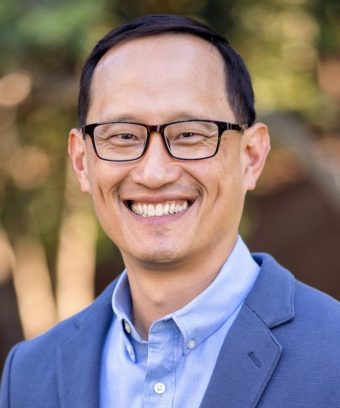
Curtis Chang: The Movement to Rebuild Democracy in America Must Include Religious Groups
The administration of free and fair elections—and the acceptance of their results—is a fundamental pillar of democracy. Each election presents an opportunity to restore trust in American democratic governance—or to degrade it. Democracy faces its greatest test at the ballot box, and the losers are just as important as the winners, for it is their acceptance of the results that allows the democratic project to continue.
At stake in 2024 is whether we begin to heal as a country or continue to fracture in a moment where deep polarization and radicalism mean another January 6th-level event is not unthinkable. To a large degree, this will be determined by the church in America.
Though the movement to rebuild confidence in American democracy is largely secular, it is an effort that rests on a foundation of Christian thought and political history. The principle of democratic elections stretches back to ancient Athens, but it was a blossoming of Christian political thought in Europe that laid the foundations of modern liberal democracy. John Locke, arguably the closest figure liberal democracy has to a father, was a committed Christian who sought to ground his political philosophy in Biblical principles. Even Jefferson, the famous deist, followed Locke in deriving the “self-evident” truth of mankind’s essential equality—the sine qua non of modern democracy—from the Christian account of creation.
Today, despite divisions and disagreements, American Christians—and those who identify as evangelicals in particular—are a powerful voting bloc in the United States, and perhaps the most influential discussant in the cultural conversation. According to Pew a majority of voters in the last four national elections have reported a Christian faith and nearly a fifth of voters identify as white evangelical Protestants. Democracy cannot afford to lose the support of this group.
Following the 2020 presidential election, Christian images and language were co-opted by antidemocratic actors in the effort to overturn the results. On January 6, 2021, Bibles and signs invoking the name of Jesus were held up outside the Capitol; on the inside, insurrectionists prayed from the Senate floor.
This fringe association between Christian doctrine and efforts to disrupt American democracy must be challenged. And addressing these misconceptions in order to strengthen and protect American elections will require the help of the church.
American Christianity has a long tradition of robust democratic support and participation to draw from, and is well positioned to shore up the foundations of democracy. By discipling Christians to disagree well, the church has a vital role to play in buttressing democratic pluralism. This entails encouraging people of faith to place greater emphasis on the “how” of politics—the manner in which we engage in public life—rather than narrowly pursuing the “what” of ideologies, policies, and political figures. It was Christ who taught we do not seek an earthly kingdom but a spiritual one. Religious engagement in the public square that is oriented toward the spiritual “how” leaves more room for tolerance of defeat at the ballot box and cultivates the virtues of humility, kindness, and pursuit of justice that mark healthy democratic participation.
Curtis Chang is the founder of Redeeming Babel. He co-produced with New York Times columnist David French and Christianity Today editor-in-chief Russell Moore a six-session video-based curriculum for church small groups called “The After Party: Toward Better Christian Politics.” You can learn more at after-party.org.

Global Policy At A Glance
Global Policy At A Glance is IGCC’s blog, which brings research from our network of scholars to engaged audiences outside of academia.
Read More